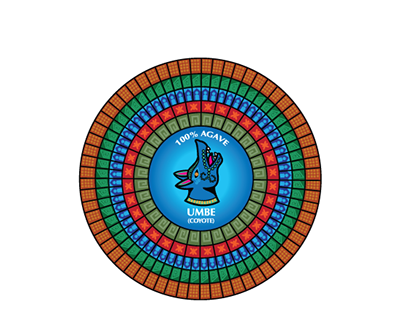
umbe - coyote -
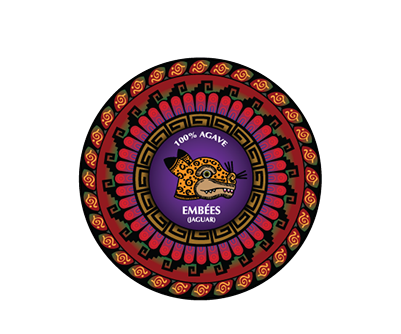
embées - jaguar -
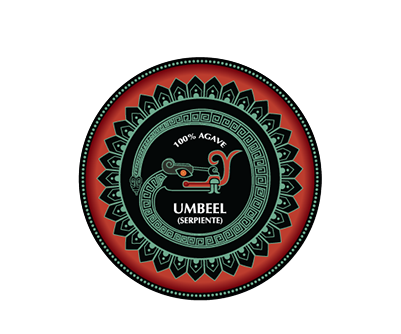
umbeel - serpiente -
Proceso Artesanal
- OAXACA, MÉXICO -
The origin of Las Tonas
In ancient times, human civilizations believed in the existence of duality between the human being and nature, such that man could adopt the features, characteristics or skills of the animals with which he had a spiritual connection. This allows us to recognize the importance of the protecting animals among the Egyptians (the cats), the Canadian cultures (the totems), and the Sioux and Apache Indians.
In the Zapotec culture, the guardian animal received the name, toná, and was associated with every individual from the day of his birth. To recognize the toná, when a child was born, the father drew a circle of lime and mezcal at the entrance to the house. The circle was left there over night; its smell attracted the spirits in the form of animals. The next morning, the father would go outside to see the tracks of the animal that had been guarding the entrance throughout the night. The animal corresponding to those tracks would be the child's protecting toná throughout the child's lifetime.
Still in existence today is a Zapotec calendar that recognizes 20 tonás, in which anyone can find his own toná,
using the day and month of his birth. You can find yours by clicking here.
Jacobo and María Ángeles: From the alebrije to the toná
In his workshop, along with his wife, Maria, the master artisan, Jacobo Angeles is one of Mexico's most renowned artists in the design of alebrijes (brightly colored folk-art sculptures) and nahuales (animals). Mr. Angeles used his artistic skills to create our trademark. Using Zapotec symbols such as the house, the snail, the fish or man that surround our tonás such as the Coyote, the Jaguar or the Serpent, he applies his knowledge of Zapotec culture to fill our products not only with the best mezcal, but also with the most important iconic symbols of Mexico's regional culture, converting our bottles into works of art that can be enjoyed every day.
Be sure to visit Mr. Angeles' workshop the next time you travel to San Martin Tilcajete, Oaxaca, Mexico. It is an extraordinary trip back in time and to the origin of our brand, that we invite you to take. Link to their web page: www.jacoboymariatilcajete.org
Each one of our brand's icons or charms were carefully thought through and drawn by the artist himself in his workshop. Inspired by ancestral culture, the alebrijes he designs, and the magic of the tonás, Mr. Angeles created a series of images that are also individually significant as well, depending on where they are found.

umbe - coyote -

embées - jaguar -

umbeel - serpiente -
What do we, as a brand, believe?
We at Las Tonas Mezcal are dedicated to two missions:
1
In helping to spread the ancestral knowledge that the Zapotec culture had of thetonás and of the mezcal, by bringing such knowledge up to date and making it interesting and stylized, giving us a modern insight into our ancient Mexico.
To this end, we purposely launched our line of products with a low alcoholic content, so that people who want to know more about mezcal can experience our mezcal (without the "burn"), by savoring it slowly to taste all of the flavors and aromas of this unique distilled beverage.
2
We believe in promoting the responsible use of the mezcal plants, which is why we work with the espadin agaves that we plant and cultivate until they reach the peak of their ripeness to be harvested, always taking care to have the best quality and diversity of flavors and aromas, albeit with one same variety of maguey.
Las Tonas Mezcal is so diverse, but so unique at the same time, that it brings to mind the duality with which it was created. Always surprising and magical, it creates an experience that bewitches and captivates the senses every time you allow yourself to be carried away by its mysticism. Las Tonas Mezcal is as diverse and unique as the State from which it comes - Oaxaca, Mexico.
Las Tonas Mezcal is a Mexican company committed
to quality and excellence, dedicated to the production
of Premium 100% espadín agave mezcal.
Produced by the master artisans of Las Tonas distillery located in the heart of Mitla, Oaxaca, Mexico. (Espadin is a species of maguey, or agave). It is Las Tonas Mezcal desire to preserve the authentic mezcal – producing traditions, by utilizing only the best and most carefull selected agaves in the regions of Matatlán and San Dionisio, Oaxaca. The artisanal method followed during the production process allows us to give our mezcals unique and special flavors. The mezcals we produce are artistic; they are selected for satisfy the most demanding palates, for consumer who are lovers of art and tradition – simply put, for those who enjoy life.
From Oaxaca to the world
Mezcal's Denomination of Origin recognizes eight States that produce this spiritual beverage. Without a doubt, the most famous of these is the State of Oaxaca. That is where the magic begins.
Our palenque (plantation) is located at kilometer #1 of the highway to Mitla. This is where our master mezcalero (maguey grower/curator) jealously oversees each step of the production process of Las Tonas Mezcal.
Mitla and San Dionisio, Oaxaca are the two towns where the espadín agaves are planted and cultivated; it is these agaves that are used to produce our mezcals. The characteristics of the land, the climate and the humidity - as well as the expert touch of our master mezcaleros - different in each place, make each one of our products pleasantly surprising.
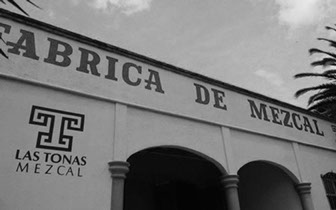
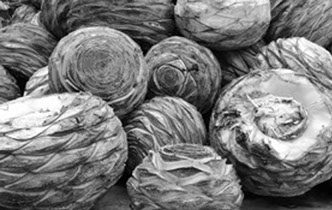
The heart of the agave
For us, the production of mezcal is a story of love and sacrifice that nature makes for mankind.
Just as it did in the ancient civilizations of Mesoamerica, the agave offers its heart in sacrifice to obtain the yearned-for eternal life. After eight to ten years of patient care, the agave is harvested, and the juices that will become the glorious mezcals are extracted from its heart.
A slow cooking process takes place in large pits in the ground. This, plus a patient natural fermentation, leaves the must, which, after double distillation in 300-liter copper vats, will become our mezcal.
The flavor of the barrel
Once our mezcals have been distilled, they are either selected to be bottled as "young" (also called "white") mezcals, or are left to age in virgin American oak barrels for six months, to be converted into magnificent expressions of aged mezcal. During this process, the wooden casks will give off extraordinary aromas and flavors, ranging from pepper and cinnamon to dried fruits.
Also, in San Dionisio, the extraordinary care our master mezcalero gives to the barrels permits us to obtain one of the most surprising mezcals on the market - our four-year-old mezcal. An elegant and velvety rising and falling of traces of flavors that range from candied fruits to cashew nuts, from the smokiness of the mezcal to the prunes, from the agave nectar to the cloves. Simply amazing.
*the abuse on consumption of alcoholic beverages may cause health problems.